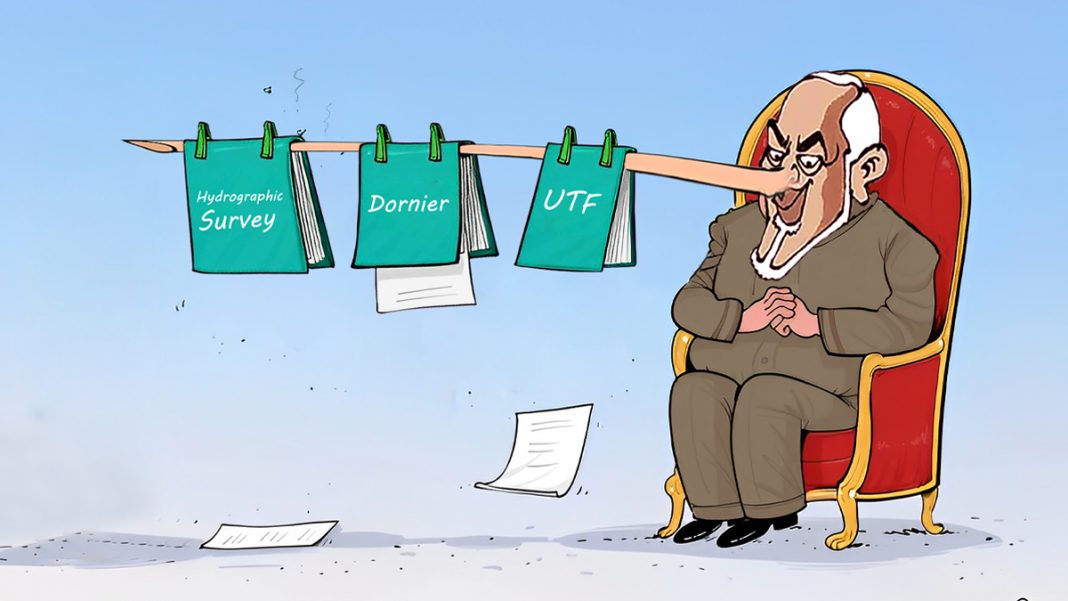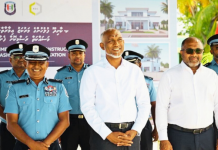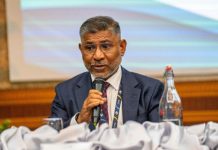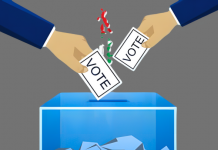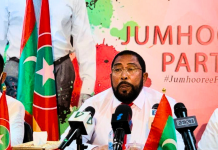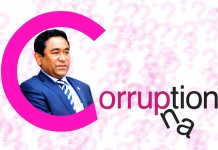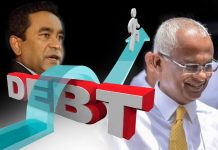President Mohamed Muizzu’s recent state visit to India has unearthed 15 significant discrepancies between his pre-election rhetoric and his current policies. These lies, designed to fuel nationalistic sentiments and manipulate voters during his campaign, are now being exposed as the president seeks to solidify ties with India, a country he previously condemned. Here’s a closer look at these contradictions:
-
False Narratives about UTF: During the election, Muizzu’s team claimed that the development of the Uthuru Thila Falhu (UTF) with India posed a national security threat. However, his recent trip revealed his intention to further develop the UTF with Indian cooperation, rendering the initial fears baseless.
-
Indian Loans and Sovereignty: Muizzu’s camp insisted that Indian loans compromised the Maldives’ sovereignty. Ironically, he signed a $757 million currency swap agreement during his visit, highlighting the strength of financial ties with India, not a threat to national autonomy.
-
Community Projects: The president’s team alleged that Indian community projects aimed to infiltrate local communities. Yet, during his trip, Muizzu proposed a series of similar community initiatives, debunking their earlier narrative.
-
Ihavandhippolhu Project: Previously, Muizzu’s team accused the prior government of delaying the Ihavandhippolhu project due to India’s influence. In a stark reversal, he sought India’s assistance to progress this project, contradicting his earlier claims.
-
Rupee Card: Concerns that the introduction of the Rupee card would deplete the dollar supply were dismissed when Muizzu implemented it during his visit, exposing the unfounded nature of those fears.
-
Energy Collaboration: Muizzu’s team had argued that collaboration with India on energy security threatened the Maldives’ sovereignty. Yet, he sought India’s cooperation on sustainable energy goals during his visit, directly opposing his prior statements.
-
Medical Collaboration: Muizzu previously suggested seeking alternative medical partnerships with Thailand and Malaysia to economically sanction India by removing Asandha, a service linking patients to Indian hospitals. However, during his visit, he requested enhanced cooperation with Indian medical facilities, contradicting his earlier rhetoric.
-
Medical Evacuation: His team branded Indian medical evacuation assistance, including the Donier aircraft, as security threats. Ironically, Muizzu requested increased medical evacuation capabilities from India during his visit, proving earlier claims misleading.
-
Maritime Collaboration: The president’s campaign spread fears that India’s maritime cooperation with the Maldives posed a security threat. However, during his trip, Muizzu sought to strengthen maritime collaboration with India, showing these fears were groundless.
-
Helicopters: Previously portrayed as threats, Indian evacuation helicopters were requested by Muizzu for deployment in the Maldives during this visit, confirming there is no military threat associated with India’s assistance.
-
Radar System: Muizzu’s team labeled radar systems initiated by former President Yameen as national security threats. Yet, he sought India’s support for radar equipment during his trip, disproving earlier accusations.
-
Hydrographic Survey: Muizzu criticized the previous government for allowing Indian hydrographic surveys, claiming such projects should be executed with local capacity. However, he allowed China to conduct similar surveys near the Maldives’ Exclusive Economic Zone and sought India’s assistance for capacity building, exposing his earlier stance as politically motivated.
-
Addu Consulate: Establishing an Indian consulate in Addu was falsely deemed a national security threat by Muizzu’s team. However, he discussed the consulate positively during his visit, confirming earlier concerns were unfounded.
-
Hanimaadhoo Airport: Muizzu’s team falsely claimed that the Hanimaadhoo Airport project was a front for a military base with thousands of Indian soldiers. This was disproven when Muizzu and Indian Prime Minister Modi inaugurated the civilian project during his visit.
-
BJP Relations: Finally, while his team portrayed the Bharatiya Janata Party (an Indian political party) as an evil entity, Muizzu met with BJP leadership during his visit, expressing a desire to strengthen party relations, exposing the earlier narrative as false.
This visit not only highlights President Muizzu’s glaring contradictions but also raises serious concerns about the credibility of his leadership. As he attempts to mend relations with India, it is vital for the Maldivian public to scrutinize the integrity of their leaders and demand accountability for the lies that were used to manipulate voter sentiment during the election.
By Mohamed Faisal, Former Deputy Ambassador to the UAE from the Maldives

